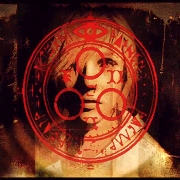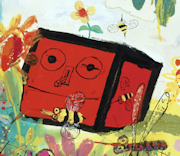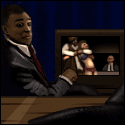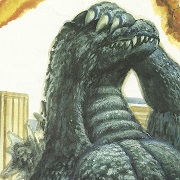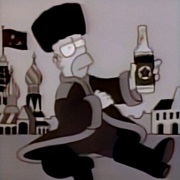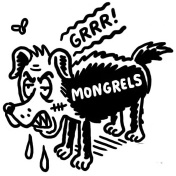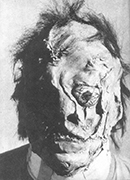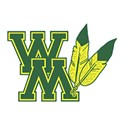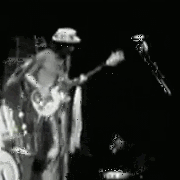|
I like reading about both food and history. I'm mostly interested in reading about the roles food and/or cooking play on culture or historical events. The only books I've read that is in this specific category is The History of the World in Six Glasses by Tom Standage and The Story of Sushi: An Unlikely Saga of Raw Fish and Rice, by Trevor Corson . I've added a few books to my 2017 reading list but I'm looking for more (or opinions on the ones I'm planning on reading). The books currently on the to-read list are: Food in History, by Reay Tannahill Consider the Fork: A History of How We Cook and Eat, by Bee Wilson An Edible History of Humanity, by Tom Standage Any other suggestions or opinions on that list?
|
|
|
|

|
| # ? May 17, 2024 05:24 |
|
Not quite the same, but there's a good Great Courses lecture series on the history of food - Food: A Cultural and Culinary History by Professor Ken Albala that even has recipes. I tried my hand at the recipe for Conditum Paradoxum once and it was rich as hell but good.
MeatwadIsGod fucked around with this message at 17:38 on Jan 10, 2017 |
|
|
|
lifts cats over head posted:I like reading about both food and history. I'm mostly interested in reading about the roles food and/or cooking play on culture or historical events. The only books I've read that is in this specific category is The History of the World in Six Glasses by Tom Standage and The Story of Sushi: An Unlikely Saga of Raw Fish and Rice, by Trevor Corson . I've added a few books to my 2017 reading list but I'm looking for more (or opinions on the ones I'm planning on reading). The books currently on the to-read list are: Cuisine and Empire by Rachel Laudan has been on my list for a while, haven't gotten to it yet though
|
|
|
|
https://twitter.com/razibkhan/status/818697349350486016
|
|
|
|
Isn't Razib Khan the phrenology guy lol
|
|
|
|
Not that I am aware of. 
|
|
|
|
chernobyl kinsman posted:can anyone recommend something fairly light on the life of Alexander? I'd check out Reluctant Genius
|
|
|
|
Megazver posted:Not that I am aware of. Ah, couldn't remember the details - he used to contribute to VDare and Taki Magazine, both of which are expressly racist publications.
|
|
|
|
lifts cats over head posted:I like reading about both food and history. I'm mostly interested in reading about the roles food and/or cooking play on culture or historical events. The only books I've read that is in this specific category is The History of the World in Six Glasses by Tom Standage and The Story of Sushi: An Unlikely Saga of Raw Fish and Rice, by Trevor Corson . I've added a few books to my 2017 reading list but I'm looking for more (or opinions on the ones I'm planning on reading). The books currently on the to-read list are: I can vouch for Consider the Fork; enjoyed it quite a bit, it's a fast and engaging read.
|
|
|
|
Random recommendation: I got John Man's Marco Polo: the Journey That Changed the World for Christmas and I flew through it in a couple of days. It was good and easy to read, but I'm of two minds about Man's style. He writes it alternating between Polo's journey and his own to retrace the steps. There's parts of Man's own travelogue that are charming and clever, but there's parts that are cringe-worthy. I think that his own travels do add something to the information, but they take something away at times. In general, though, it's a good intro to Polo's expedition, and to the apex (arguably) of the Mongol Empire. There's some good stuff about central Asia and it's people and geography that was new to me.
|
|
|
|
lifts cats over head posted:I like reading about both food and history. I'm mostly interested in reading about the roles food and/or cooking play on culture or historical events. The only books I've read that is in this specific category is The History of the World in Six Glasses by Tom Standage and The Story of Sushi: An Unlikely Saga of Raw Fish and Rice, by Trevor Corson . I've added a few books to my 2017 reading list but I'm looking for more (or opinions on the ones I'm planning on reading). The books currently on the to-read list are: Edible History was pretty good. I didn't like it as much as 6 glasses but it fits the bill of what you're looking for. Salt by Mike Kurlansky might be good too although I haven't read it myself so I can't say for sure.
|
|
|
|
Fork of Unknown Origins posted:
"Salt" was a fun read. Kurlansky has a gift for making these mundane things narratively exciting. His book on Cod was downright thrilling. He's good at this.
|
|
|
|
^Seconded, Cod was amazing
|
|
|
|
Eh, I re-read Salt on a vacation a couple years back and I wasn't super impressed. Don't get me wrong, it's good beach reading. He does a good job of describing stuff. I've got a pretty vivid memory of his description of Chinese salt monopolies and production methods, and I re-read it a while ago. What kind of got me is he doesn't seem to have much of an argument. Just "here's this really important thing we use all the time, now let me tell you how people produced it over the last 2000 years."
|
|
|
|
Cyrano4747 posted:Eh, I re-read Salt on a vacation a couple years back and I wasn't super impressed. What argument would you want? "No, salt sucks and never should have gotten this important!"? I mean... it is what it is, there's not a lot of controversy to be generated by it. An engaging retelling of its history is enjoyable on its own without forcing some kind of argument into the tale.
|
|
|
|
smr posted:What argument would you want? "No, salt sucks and never should have gotten this important!"? I mean... it is what it is, there's not a lot of controversy to be generated by it. An engaging retelling of its history is enjoyable on its own without forcing some kind of argument into the tale. Agreed on this one; the book is just a well-written history of Salt and its relationship to humanity.
|
|
|
|
I liked Salt, read it last year. My father gave it to me, having read it himself a few years ago. He still brings it up in this did-you-know-that kind of way. It's pretty good overall but the thing that bugged me about it was a certain lack of precision. 95% of the book is about NaCl, but that 5% covers a bunch of other ionic compounds that are technically 'salts', and in pre-scientific eras the distinctions were not known (tastes salty - is salt) but nothing was gained by a too-simple explanation of nitrates.
|
|
|
|
On a similar topic I'd be real interested in a book about the East India Trading Company if anybody has a good recommendation.
|
|
|
|
lifts cats over head posted:On a similar topic I'd be real interested in a book about the East India Trading Company if anybody has a good recommendation. John Keay's book is pretty comprehensive. I think it's called The Honourable Company or something like that.
|
|
|
|
Hi. I apologize for not reading the whole thread, but I'm looking for books anyway. I want to learn about the interwar period. Anything would be good, but there are some topics in particular: 1) Labour movements in this time, and the influence they had 2) The rise of fascism 3) The breakup of old empires and what this meant 4) Revolutions and wars during this period I'm not an academic! I can tolerate some dry stuff, but simpler, more introductory works would probably work better for me. **** To contribute a bit, I recently finished Generation Kill. Quite interesting. I view it as a good companion to the (excellent) HBO miniseries. The book is more strictly journalism, and goes into certain details that the show doesn't. A good read if you're interested in an "on the ground" view of the US military in general or the invasion of Iraq specifically.
|
|
|
|
A good overview of the collapse of the democratic order in Interwar Germany that's meant as a sort of introductory text for the amateur reader would be Richard Evans' Third Reich series. The first of them is called The Coming of the Third Reich, and provides a good general overview of German history and the sort of institutional collapses that made fascism possible. Might be interesting for you?
|
|
|
|
HannibalBarca posted:A good overview of the collapse of the democratic order in Interwar Germany that's meant as a sort of introductory text for the amateur reader would be Richard Evans' Third Reich series. The first of them is called The Coming of the Third Reich, and provides a good general overview of German history and the sort of institutional collapses that made fascism possible. Might be interesting for you? Yup, this sounds great, thanks! Still looking for recommendations on other topics though, especially labour-related stuff.
|
|
|
|
Paris 1919. Doesn't really deal with labor issues, though. More about the Treaty and follow-on effects.
|
|
|
|
My go-to recommendation for understanding the ideological underpinnings of fascism (which is a really major part of understanding its rise) is the aptly titled Fascism: A Very Short Introduction. It's a really well written book that does a really good job of laying out what the gently caress fascism actually is, what its ideological roots are, and how the various manifestations were different from each other while still being able to be categorized under the same broad heading. It has the added bonus of being succinct enough that you can get through it in a few hours, although it's one of those books where re-reading it really helps nail down the details.
|
|
|
|
Paxton's Anatomy of Fascism is authoritative and a very concise historical analysis covering the 20th century with a focus on Nazi Germany and Fascist Italy. he argues that no other totalitarian regimes were truly fascisms
|
|
|
|
lifts cats over head posted:On a similar topic I'd be real interested in a book about the East India Trading Company if anybody has a good recommendation. A different company, but if the VOC/Dutch East India Company is of any interest, I'd recommend checking out Batavia's Graveyard by Mike Dash. It's rather gory, but also historically accurate, well researched and a true story, which is kinda amazing and hosed up. Also described as "Treasure Island meets Deliverance". Meta-Mollusk fucked around with this message at 20:50 on Jan 24, 2017 |
|
|
|
Count Roland posted:Hi. I apologize for not reading the whole thread, but I'm looking for books anyway. The Vanquished by Robert Gerwarth is a good book on the aftermath of the first world war. The Dark Valley by Piers Brendon is a survey of the 1930s in several countries that were major players at the time. I second Paxton's Anatomy of Fascism.
|
|
|
|
Minenfeld! posted:The Vanquished by Robert Gerwarth is a good book on the aftermath of the first world war. The Dark Valley by Piers Brendon is a survey of the 1930s in several countries that were major players at the time. I second Paxton's Anatomy of Fascism. Just finished "The Vanquished" and yeah, it's a very solid overview of an under-covered era. Real fuckin' grim, tho'. I read "The Dark Valley" years ago and recall it being quite good as well.
|
|
|
|
Thanks for all the feedback guys. My amazon list so far is: 1) The Dark Valley: A Panorama of the 1930s (seems pretty well regarded, and covers many countries which is a big bonus for me) 2) Paris 1919: Six Months That Changed the World (was already on my to-read list for other reasons) 3) Fascism: A Very Short Introduction (heard before this was good) The Vanquished and Anatomy of Fascism are on the maybe list.
|
|
|
|
This is a great thread, I got these ordered: -A Writer At War -Bury My Heart at Wounded Knee -Shattered Sword -Cod I started a Writer at War and it is excellent. I didn't know someone could advance in the Soviet Union without being in the communist party, I thought that was mandatory. Learning a ton.
|
|
|
|
Hyrax Attack! posted:This is a great thread, I got these ordered: A Writer at War is fantastic. If you're interested enough in that era of the Soviet Union enough to branch out into essay and fiction, I recommend Yevgeny Zamyatin's We, and his collected essays in A Soviet Heretic. We directly influenced 1984 and Brave New World (Orwell gave it credit in his own writings, but Huxley didn't because Huxley was kind of a dickhead). It was banned by Stalin and Zamyatin himself was jailed. He did a lot of his essay writing during his imprisonment and afterward in exile, and it shows another writer's perspective on the era. We is fiction and the essays are what they are, so none of this is reportage like A Writer at War, but it's all great stuff to get a more nuanced view of Stalin's Soviet Union. Also: Bury My Heart at Wounded Knee is excellent, and one of my favorite pieces of writing on that topic, if not any historical topic.
|
|
|
|
Any recommendations on the Civil Rights Movement that cover all of the bases, i.e. MLK, Malcolm X, the Black Panthers, etc.? My knowledge on the subject is limited to the sanitized version that a lot of Americans learn in high school and I want to get a better grasp on it.
|
|
|
|
I can also vouch for A Writer at War
|
|
|
|
Anybody have a recommendation on maps/map making throughout history?
|
|
|
|
lifts cats over head posted:Anybody have a recommendation on maps/map making throughout history? A History of the World in 12 Maps is a good 'un
|
|
|
|
lifts cats over head posted:Anybody have a recommendation on maps/map making throughout history? Dunno if you mean in general or for somewhere specific but Valerie Kivelson's Cartographies of Tsardom is a wonderful book about maps and space in early modern Russia.
|
|
|
|
for something specific, Steven Johnson's The Ghost Map is a very good book about how cartography stopped a cholera epidemic in 1850s london
|
|
|
|
|
A Dapper Walrus posted:Any recommendations on the Civil Rights Movement that cover all of the bases, i.e. MLK, Malcolm X, the Black Panthers, etc.? My knowledge on the subject is limited to the sanitized version that a lot of Americans learn in high school and I want to get a better grasp on it. I would also be interested. So far, I've read Taylor Branch's 3 part biography of MLK, and I thought it was excellent. I'm reading some of Baldwin's essays and will probably pick up Malcolm X's autobiography next, but not sure about a good survey of the whole movement.
|
|
|
|
I can only suggest more books on bits and pieces. The Race Beat (Gene Roberts/Hank Klibanoff) covers the 1950s-early 1960s south through reporters' eyes. It doesn't capture everything, but it's good insight into perspectives. It stays almost exclusively in the south except for a brief chapter on the differences in covering the Watts riots. Rick Perlstein's Nixonland gets some of the later years and some of the northern issues, but of course, it's much more widely political. For something very focused and contemporary, the archives of Southern School News (1954-65). Does include some non-traditional yet backwards states such as Delaware. Though it's education-based, you get glimpses of the wider picture. Arguably more than anything, schools drove Civil Rights as school integration terrified southern whites. To the point many were actually willing to pay for something close to separate but equal to prevent it from happening. A companion of sorts is There Goes My Everything (Jason Sokol) for the southern white perspective of Civil Rights changes. Not a beginner's book, though, as you have to be pretty well versed in individuals and geography. I'd also encourage finding black newspapers of the era (Atlanta Daily World, Chicago Defender, Pittsburgh Courier, etc.). It was the Courier that came up with the Double V campaign during World War II, one of the launching points of the Civil Rights movement.
|
|
|
|

|
| # ? May 17, 2024 05:24 |
|
I haven't read it yet but if we're talking bits and pieces of Civil Rights era history I recently picked up Black Against Empire: This History and Politics of the Black Panther Party by Joshua Bloom & Waldo E. Martin. Looking forward to that one.
|
|
|





